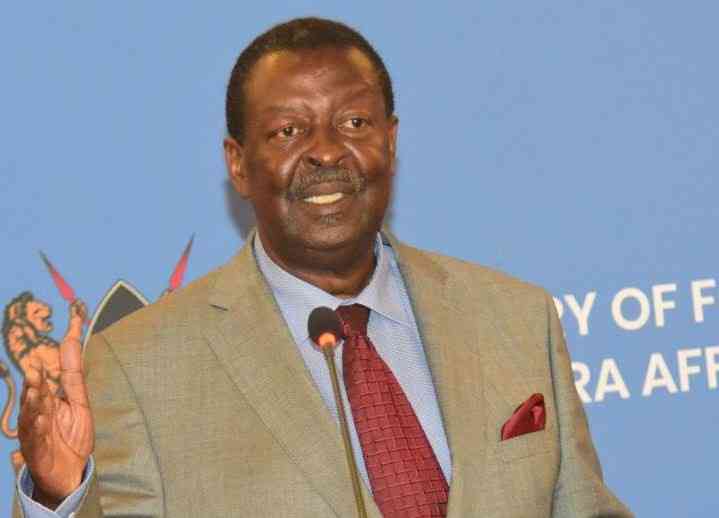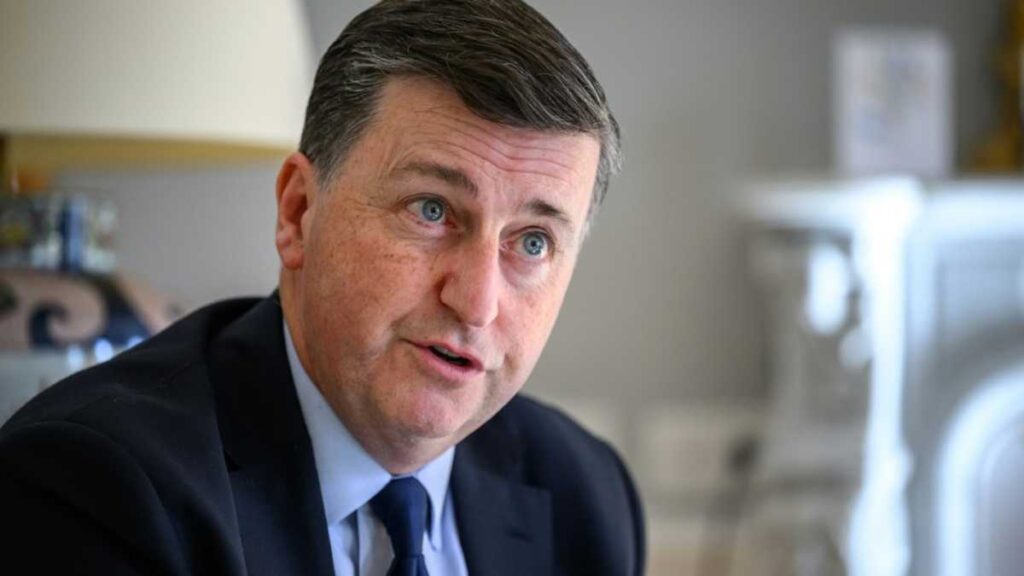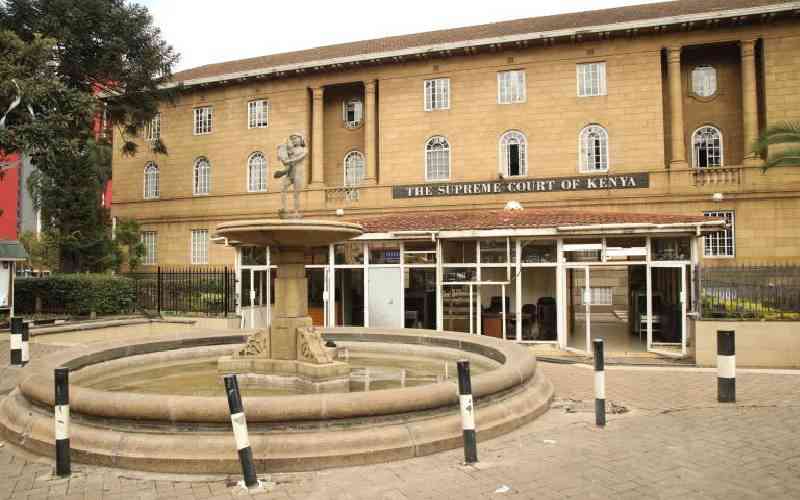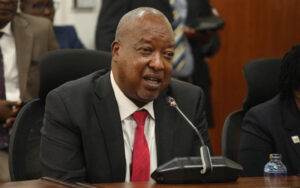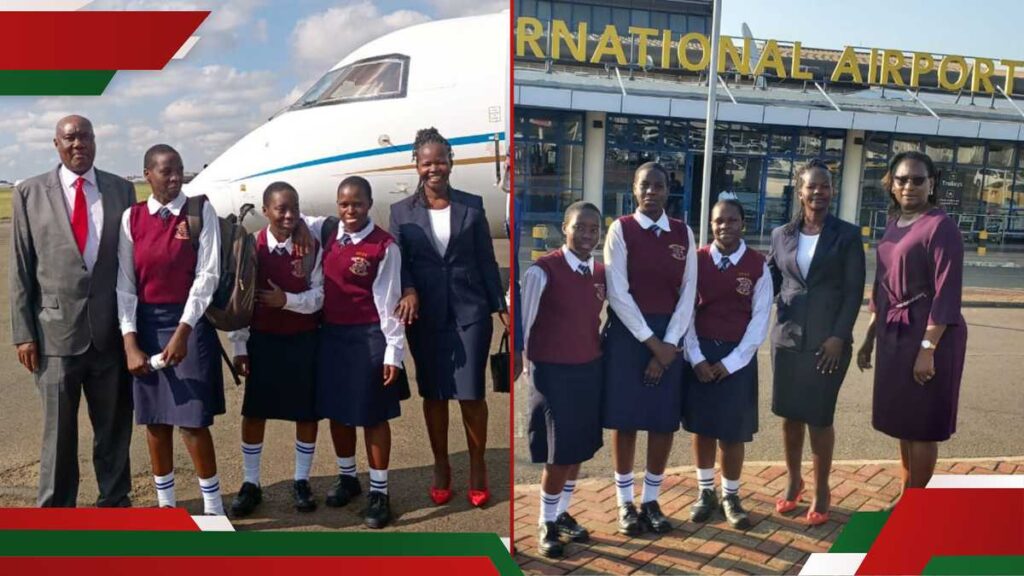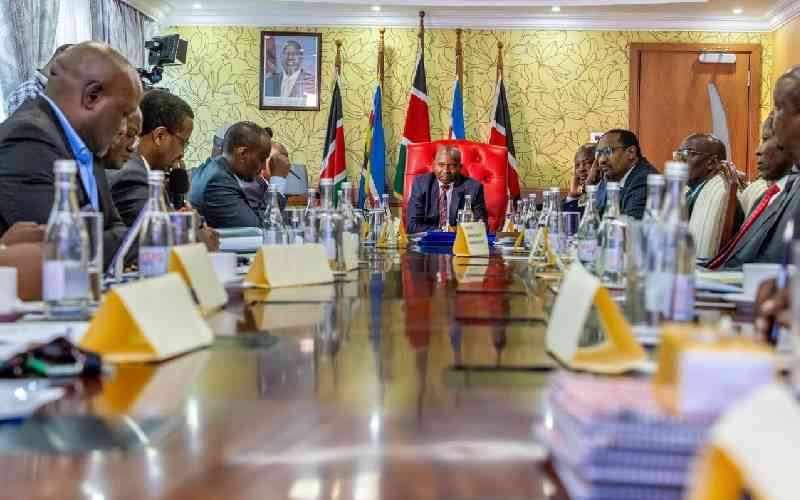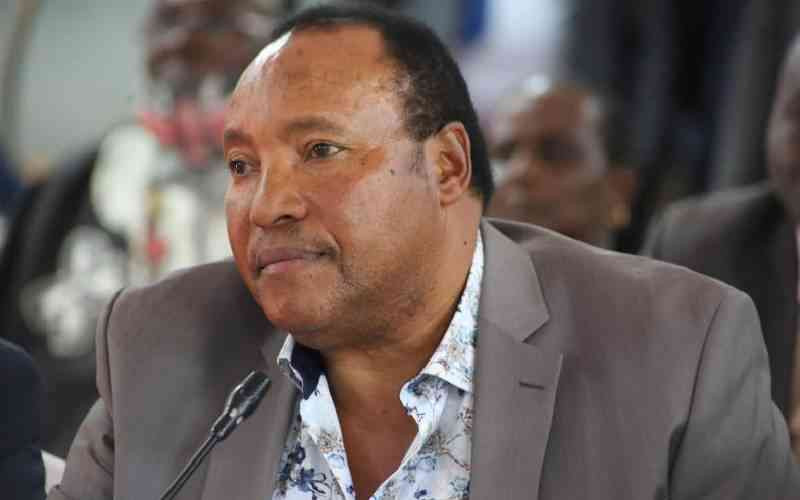Kenya will not let trade tensions disrupt its humanitarian mission in Sudan, despite the export ban, Prime Cabinet Secretary Musalia Mudavadi says.
Mudavadi instead reaffirmed Nairobi’s commitment to supporting the Sudanese people amid an escalating crisis.
Speaking on Tuesday during a quarterly diplomatic briefing, Mudavadi acknowledged Khartoum’s recent decision to suspend Kenyan imports—including tea—but insisted that such disputes would not interfere with Kenya’s broader humanitarian obligations.
“We know they say Kenyan tea should not go there [Sudan], but that is a trade issue. On the part of Kenya, we want to state that in spite of all these challenges, humanitarian efforts that take place in Sudan—logistics, supplies—will continue, and Kenya shall not in any way interfere with that process,” Mudavadi stated.
He further said Kenya’s approach is rooted in goodwill and regional responsibility.
“Whatever humanitarian activities are in support of the people of Sudan, where there’s a serious humanitarian crisis, Kenya will continue to play its role in the international arena to support those efforts,” he said.
Mudavadi also addressed the diplomatic friction that has emerged following the signing of a controversial charter by Sudanese parties in Nairobi, which led to Khartoum suspending Kenyan imports on March 11.
The Sudanese government accused Kenya of facilitating the formation of a rival government by hosting representatives of the Rapid Support Forces (RSF).
However, Mudavadi dismissed these allegations as misinformation.
“There has been some misinformation that a parallel government of Sudan has been formed in Kenya. That is not true. We have had a chance to look at their documentation, and there’s no such wording,” he stated.
He urged observers to distinguish between constitutional language and political intent.
“In a number of constitutions in the region, the terminology ‘self-determination’ appears,” he said.
“This should not be misconstrued as Kenya supporting secession. We stand for a peaceful, unified Sudan.”
Stay informed. Subscribe to our newsletter
Calling for inclusive dialogue, Mudavadi said Sudan’s political future should not be dictated by its military alone.
“The debate on Sudan should not be a dialogue of the generals alone. What about civil society, political parties, and other Sudanese stakeholders? They, too, must have a seat at the table,” he said.
Mudavadi reaffirmed Kenya’s longstanding role as a neutral facilitator in regional peace efforts, referencing its involvement in peace processes in Angola, South Sudan, and Somalia.
“We shall continue to encourage peaceful conversations. But we shall not form governments in exile in Nairobi—those must be determined by the people themselves,” said Mudavadi.
His remarks come amid growing anxiety among Kenyan exporters, especially in the tea sector, following Sudan’s enforcement of the import ban.
On April 1, the Sudanese Embassy in Nairobi declared that the embargo remains in full effect, contradicting earlier comments by President William Ruto suggesting that Kenyan tea was still reaching Sudan through indirect channels.
“This decision has been fully implemented, and since then, no Kenyan products, including Kenyan tea, have been imported into Sudan,” the embassy said in a statement, labeling contrary claims “unfounded and inaccurate.”
Sudan maintained that the ban was a sovereign decision grounded in national interest, while reiterating its support for regional cooperation based on mutual respect and non-interference.








